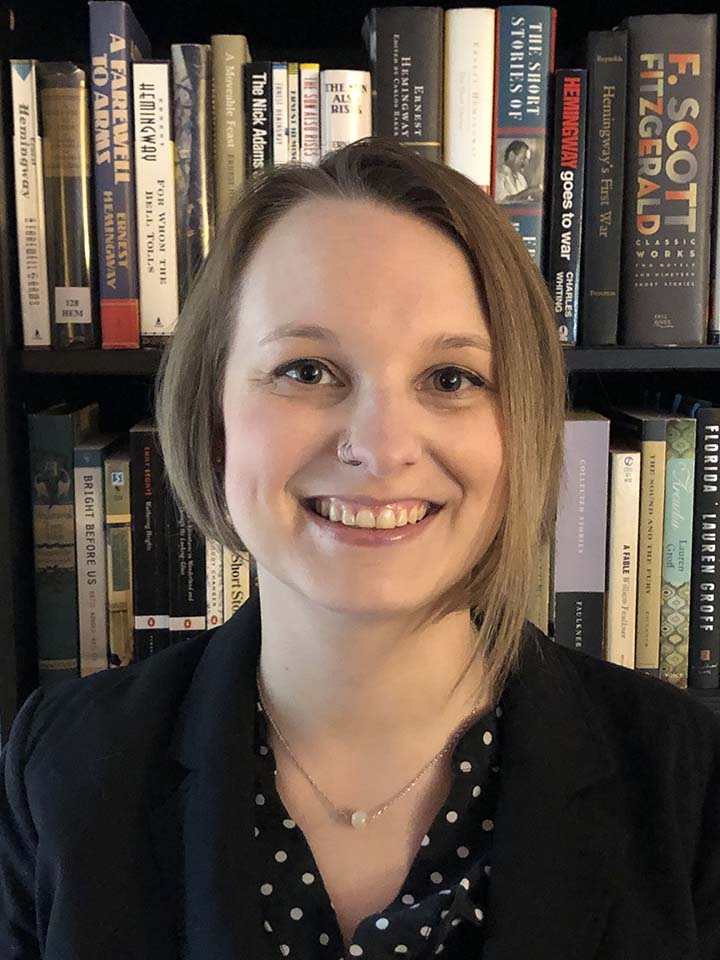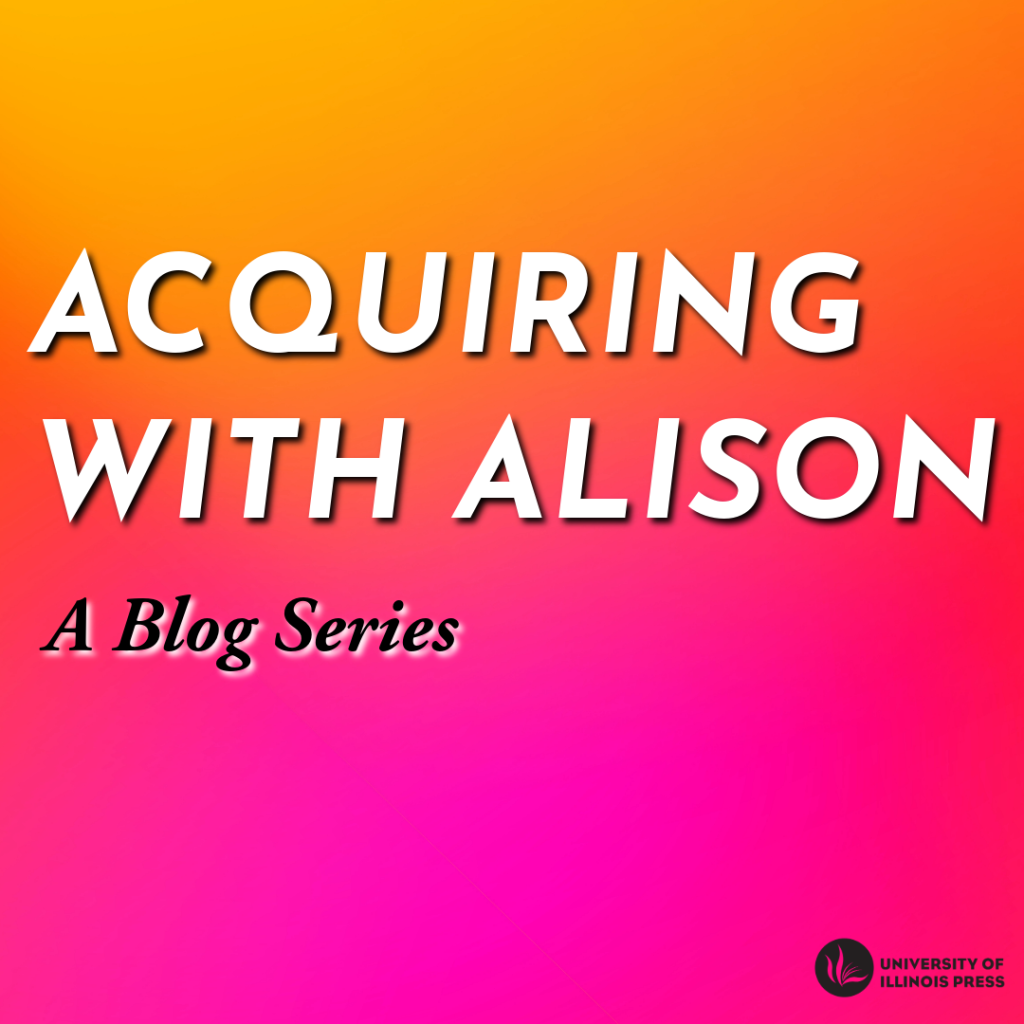How do editors approach peer review?
Peer review is on my mind right now, because it is a particularly difficult time to secure reviewers. While this has been true since I started acquiring in 2019, and especially since the pandemic, I still have seasons that are harder, and late summer is one of them. I have also been reading more posts on social media about negative peer review interactions, and I’ve had my fair share along the way too. So I wanted to write about peer review from an editor’s perspective.
From my point of view, peer review serves two purposes. First, it is the process by which I have a project evaluated in order to secure a contract. At Illinois, most projects need to be peer reviewed and approved by at least two scholars and presented to our boards before we can offer a contract. (The exceptions here are for projects we sign through prizes, for certain series, or for subsequent editions.) As such, peer review is a critical part of my job.
Second, peer review offers authors pre-publication feedback on their work. Books are often reviewed after publication, in both trade and scholarly forums, but pre-publication review gives authors a sneak peek into what their peers thinks about their work and offers the opportunity to respond to those critiques in the writing and revision process. Peer review at a press offers this in a more formal format, where the reviewers are experts in the field whom the author doesn’t necessarily know, unlike receiving feedback from mentors, colleagues, or writing professionals.
In short, the best peer reviews help secure a contract and help an author make their book better.
For me, the review process starts when I read a new proposal or submission. One of the primary questions I’m asking myself is, Is this material ready for peer review? In order to answer that question, I test the aspects of a proposal that I mentioned in my previous post on book proposals. For a manuscript, I am especially interested that the introduction sets out the book’s argument and stakes clearly, and that the chapters follow logically from the introduction. A book or a proposal is ready for peer review, in my eyes, when I have helped the author address the writing or stylistic aspects of the proposal or manuscript, so that the scholarly peer reviewers can focus on the scholarship, which I am not prepared to evaluate. (If an author is interested in a series, then series editors may weigh in at this stage and recommend content-level revision based on their subject matter expertise.)
Once I’ve read the material, I talk with authors about peer review. Based on their career goals, timelines, and other factors, we may send out a proposal and sample chapters for review, or we may wait for a full manuscript. We may try to polish the submission quite thoroughly, or we might wait for peer review feedback on an aspect, like the organization, that an author wants more feedback on before they revise. Regardless of what we send out or when we send it out, my goal is to make peer review an intentional decision for everyone.
Throughout these steps, and especially when we decide to move forward, I am thinking about the best reviewers for the project. I also ask authors and series editors for peer review suggestions. But what makes a good peer reviewer?
In my experience, there are a few qualifications that are important in the ideal peer reviewer.
- A peer reviewer should have written a book. It is difficult for a reviewer to evaluate a type of publication that they haven’t produced themselves. While I like the idea of incorporating early-career or non-traditional scholars into my pool of reviewers, their expertise in the topic can be less useful than their lack of experience in the form. If I am seeking reviewers for a single-authored book project, then I want someone who has authored a book themselves. I also want the scholar to have published with a scholarly press, because this means the reviewer will also understand the peer review process. There are exceptions to this rule, especially for fields in which books are not the norm for promotion and tenure, but I try to follow this as often as possible.
- A peer reviewer should not have a conflict of interest with the author. By “conflict of interest,” I mean scholars who cannot offer (or may be seen not to offer) an objective assessment of the material. For example, it isn’t useful to have a dissertation advisor or committee member serve as a peer reviewer for a book manuscript. These scholars have already read the work (albeit in a different format) and ideally provided the author with thoughts about how to revise that work into a manuscript. Sometimes advisors continue as informal readers, or they become long-term mentors who continue to be involved in a scholar’s work. Peer review seeks to get feedback from peers, not from those who’ve had influence over the author or their work. Along the same lines, reviewers shouldn’t come from the same institution where the author works, and they shouldn’t have relationships with the author that would make it difficult for them to read the work in an objective way. Close colleagues and professional friends often serve as informal readers, and my goal is really to get a sense of a project from someone who hasn’t read it and doesn’t know the author. Admittedly, this can really reduce the number of potential reviewers, especially in small fields. Sometimes I need to weigh all my options and have frank conversations with potential reviewers in order to find the best fit. It’s also helpful when reviewers I query let me know about a potential conflict so that we can make the best decision moving forward.
I also consider it a conflict of interest if a potential reviewer has philosophical differences with an author or has not reviewed their work in good faith in the past. Sometimes I know about these types of disciplinary disagreements, and I avoid querying those reviewers. I also ask authors if they have scholars whom they would prefer I not query. It would be a red flag for me if an author has a list of ten scholars like this, but if they have one or two who they don’t think could offer an objective review, then I appreciate knowing about it. - A peer reviewer should come from the discipline to which the author is writing and/or use the methods that the author is using. While many authors I work with are doing interdisciplinary or multidisciplinary work, they invariably have a dominant perspective, usually the discipline in which they were trained. For example, anthropologists often use historical methods to lay the groundwork for their ethnographic work. (See Jason Palmer, Forever Familias.) However, using a historian as a reviewer for a project like this can be problematic because they don’t have the same approach to writing books and they use different methods and bodies of evidence to support their claims. I have more success matching manuscripts by discipline or methodology than I do by topic, because of these differences in approach (though ideally the reviewer pool will be large enough to find someone who does both). For interdisciplinary or multidisciplinary work, it can be useful to use reviewers in the two most dominant methods, so that together they speak to the complete project.
- A peer reviewer needs to be available to take on the review. This may seem obvious, but I have to work with the scholars who have time to review. Yet, the best scholars might not be available on the timeline that I suggest, so I also have to be willing to accommodate longer schedules when that is in the best interest of the project. While authors are often eager to get reports as quickly as possible, choosing the fastest timeline over the best reviewer is not ideal.
As I mentioned at the top of this post, peer review is hard right now. Even following these guidelines, I get less-than-ideal reports sometimes. But I have found that these tips help me focus on the best possibilities.
*****
Check out a recent guest post from Alison about artificial intelligence and peer review in scholarly publishing on The H-Net Book Channel’s Feeding the Elephant: A Forum for Scholarly Communications.

Alison Syring is an acquisitions editor at the University of Illinois Press. She has degrees in English literature and history from the University of Maryland, an MA in writing from Johns Hopkins University, and an MFA in creative writing from the University of Illinois. She started in publishing as a production editor and worked for several years as a technical writer. Alison began as a Round the Press intern through the graduate English department, after which she was hired as a full-time assistant editor. She has been acquiring in history and religion since 2020. Alison continues to acquire and grow a flagship series—the Working Class in American History series; diversify our Mormon studies list and broaden into religious studies; and maintain our commitment to early-career scholars by starting an Outstanding Dissertation in Disability History prize published through our Disability Histories series.

